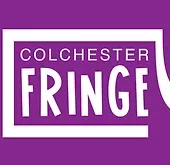FringeReview UK 2019
The Trials of Oscar Wilde
European Arts Company

Genre: Adaptation, Drama, LGBT, Theatre, Verbatim Theatre
Venue: Royal Pavilion Brighton
Festival: FringeReview UK
Low Down
Directed by O’Connor this touring production for European Arts Company brings rich values of its own as well as the four multi-roling actors. Even without Tom Paris’ set on this leg, Matt Eaton’s sound design deploys a thwunk and resonance of jail doors slammed. Anett Black’s costumes too exude male late Victoriana. Jennifer Drew’s wigs are trim and naturalistic. Duncan Hands’ lighting is clean evoking depth. At the Pavilion till 11th April. Then touring till June 1st.
Review
The setting – the library of Brighton’s Royal Pavilion – is so sumptuous they struck the set for this leg of the tour. That might strike the subject of The Trials of Oscar Wilde as a paradox fit for a line in his plays. When lecturing here in 1884 Wilde thought the room’s decor personified taste left at the lintel. Or perhaps the whole building’s porch.
Happily Wilde’s grandson Merlin Holland and dramatist and director John O’Connor feel more sanguine, and other production values come across crisply in this resonant space, featuring the 1895 trials of Oscar Wilde, the first instigated by him against the Marquess of Queensberry for libel, the subsequent two by the DPP working with Queensberry against Wilde. These latter two are neatly elided. The first had ended inconclusively.
What we’re presented with is more than verbatim theatre. Filleted between edited transcripts of the trials, already intimately known with infamous letters attached, are excerpts of other letters and increasingly extracts from De Profundis, that confession written by Wilde in 1896-7 to Bosie, Wilde’s nemesis, son of Queensberry. Bosie pushed Wilde to prosecute, then told him not to run, as did Wilde’s nationalist mother. Between their pride Wilde’s pride fell.
Directed by O’Connor this touring production for European Arts Company brings rich values of its own as well as the four multi-roling actors. Even without Tom Paris’ set, Matt Eaton’s sound design deploys a thwunk and resonance of jail doors slammed and various noises off that sound more like a run than a tour. Anett Black’s costumes too – deployed in countless role-changes – exude the rich-not-gaudy-except-when-gay of male late Victoriana. There’s two delicious exceptions involving a mob-cap. Jennifer Drew’s wigs too never guy the guys – they’re trim and naturalistic. Duncan Hands’ lighting is clean, deploying here the depth if not width of the modest dais on which all action takes place, with a couple of chairs. To invoke the greenery-yallery orange of walls, and light turquoise ceiling might reinvigorate sumptuary laws.
John Gorick’s Wilde personifies him with a statuesque dignity not immune to a sphinx-like smirk, a wounded surprise, and in place of what we expect is smooth epigrammatic delivery a halt, a hesitation, a backtrack. It’s quite clear the trial’s been thoroughly revivified. But most of all Gorick beyond fencing is moving as a man whose world crashes from its vertiginous hubris. sex, fame an pride usually end up in British law courts.
And instead of enduring two lengthy summaries for prosecution and defence, they’re counterpointed like a tennis match, with bits of De Profundis hushed in for contrast. Behind all this, rather like badminton it’s so delicately done, are excerpts of The Importance of Being Ernest upstage, acted with boaters and the voice of Fleur Shepherd. Hauntingly Ernst’s lines resonate too from the sound system. ‘To find all my life I’ve been telling nothing but the truth.’ It’s a consummate bricolage. Repetition’s inevitable, though minimized. That’s how it was, the prosecution continually reprising material from a different angle.
We start when February 14th 1895 was the pinnacle of Wilde’s triumph, applauding the audience for admiring The Importance of Being Ernest almost as much as he did. Four days alter Queensberry delivered the infamous card to the Albemarle Club ‘To Oscar Wilde posing as somdomite’ in his dyspepsic illiteracy.
Particularly chilling is the equally imposing Rupert Mason as Queenberry, with rage only just contained, veering on madness. There was one reason that can’t be explored in the trials here. Queensberry’s other cute son Frederick had had an affair with the then Foreign Secretary Rosebery, now Prime Minister. He’d recently shot himself. The enraged Queensberry is supposed to have threatened the PM with exposure if he didn’t prosecute Wilde. It made Rosebery ill but he complied. After the trials, his health improved sharply.
Mason also takes the art of Edward Carson, later famous Unionist and the original for the QC who took on the Winslow Boy (Archer-Shee) case. ‘With all the bitterness of an old friend’ Wilde remarked of his Trinity College Dublin rival, it’s Mason’s performance as Carson that begins to skewer Gorick’s Wilde, especially over the hesitation over a boy too ugly to be kissed. This is the greatest moment of the play. Mason and Gorick lunge and feint at each other. It’s thrilling theatre. And yet … in reality Carson then told Queensberry to stop his persecution and unlike Wilde’s QC refused to act further. Mason takes up the quieter but steely Charles Gill for the prosecution in the second act.
Patrick Knox as Sir Edward Clarke exudes the Edinburgh Attorney-at-Law with his fine equivocations, born of the ‘not proven’ school, even when he discovers Wilde’s been lying. He acted pro bono when Wilde went bankrupt – a scene jeeringly acted by Mason as an auctioneer encountering his own nemesis as everyone makes off with the goods. Knox brings out the canniness and anxiety of Clarke’s counsel, first to stop the prosecution, telling Wilde to run, then latterly in demolishing as much as he can the witness statements.
Benjamin Darlington enacts many youthful or gamine roles, the egregious Sidney Wright, and shuffling Arthur Wood earlier, shame-faced and with truth wrenched from him. He’s a chippy American reporter, and his starring role Charles Parker the boy who lived with incense sticks and blacked-out windows during the day. And is unemployed! The way Knox and Mason pluck at his pride, his shed of conscience and his nonchalant acceptance of himself, to their horror, is a dark delight. As maid Jane Cotter he’s a bespectacled confusion unable to see further than her assumptions.
Mason deploys at least two kinds of register. For Queensberry and the austere Carson patriarchy in different forms persists. In Gill he’s a skilled patrician. As the shifty William Allen in the first act, the blackmailer Fred Atkins or that auctioneer he exudes a truculence traduced by smarter men, rocked back on his heels and swaying as Gorick’s Wilde does on occasion. It’s very funny, slightly chilling. Knox’s policeman and particularly the fantastical Antonio Migge ‘I am professor of masseuse’ allows Knox a glint of farce too.
this troupe are magnificent. There’s fine direction here too, allowing for instance the towering Gorick an upstage position to bask in tragic grandeur, or downstage on a chair to whisper intimacies. Much use is made of a small stir in stillness by all concerned. Like Charles I, Wilde asks if he’s not to speak after sentence. The thwunk resonates again.
Had Wilde absconded, he might not have died in 1900, declaring ‘either I or that wallpaper has to go’, and done much. His tragic wife Constance and Queensberry himself died in 1898. Bosie, who first did a volte-face turning homophobic, gentled his condition. Recanting his intolerance he became the friend and beneficiary of Shaw and Marie Stopes. He lived on nearby at the Hove gasworks till 1945, where a Tesco’s is planted. The late Donald Sinden found him immensely kind. This writer’s uncle interviewing him that year found him ‘a charming old soak’ but with a steely glint.
Bosie’s much invoked, the elephant boy in a room which happily excluded him. This is Wilde’s night, Gorick’s night too though it’s a faultless cast. There’s a miraculous importunity in seeing Wilde like this bestriding the décor like a colossus of taste, and marching out alive. A must-see.




























